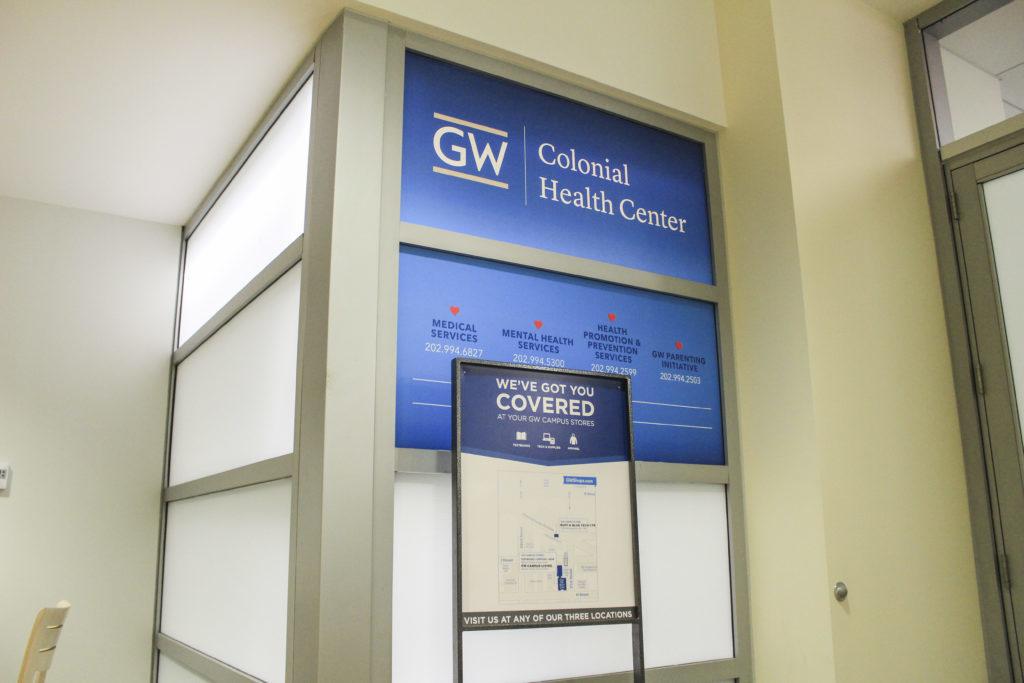Updated: March 17, 2017 at 9:36 a.m
The University’s human resources department is offering new mental health programs for faculty and staff.
This semester, the department has offered webinars, workshops and panels on topics like anger management, work-life balance and mindfulness. Officials said they want to increase employee knowledge of and access to resources and respond to staff requests and feedback about well-being and mental health resources.
John Kosky, the associate vice president for talent management, said in an email that the HR office is aware that finding mental health resources in the D.C. area can be challenging. His department works with the University’s healthcare vendors to make sure that employees know about available resources, like a well-being hotline, workshops, seminars and online services, he said.
“Our goal is to increase awareness of what is available and, working with our vendor partners, to ensure employees have access to what they need, when they need it,” Kosky said.
Last month, the University’s health care provider introduced myStrength, an app advertised as a “health club for your mind.”
The app, run through GW’s Wellbeing Hotline and Aetna, gives users access to information about depression, anxiety, meditation, stress reduction, substance abuse and chronic pain, according to the GW Staff Association newsletter. The Wellbeing Hotline is a free confidential phone counseling service, available 24/7, for University employees and their families.
Kosky said the department is not specifically increasing its focus on mental health issues, but that results from a satisfaction survey last summer showed that employees wanted more access to and information about mental health resources.
Recently, the University began working with a new provider for an employee assistance program that provides confidential free counseling to employees and increased the mental health provider options for employees, Kosky said.
“The net effect was a much larger network of providers than was previously available,” he said.
He added that the health cost transparency tool the University will begin using this summer includes a section dedicated to information about mental health care providers.
Robin Kuprewicz, a research project administrator in the Milken Institute School of Public Health and a member of the Staff Association, said some of the wellness benefits have been available for years, but that the association has been working with HR more to advertise benefits, publish information about well-being and work-life balance and share feedback from staff.
Kuprewicz said in an email that staff have suggested ideas for things like more green space on campus and incentives for students and employees who bike or walk to work, which the Staff Association sends to HR.
This year, she’s noticed an increase in the amount of resources and discounts related to staff members’ overall health, including mental health, Kuprewicz said.
“It seems like employers are moving slowly towards providing for employees’ overall well-being, rather than just medical benefits,” she said. “There is increasing understanding about the need to support work-life balance, mental and emotional well-being and social health in order to fully serve staff.”
Experts in workplace mental health say that universities across the country have started to offer more mindfulness and wellbeing resources, like counseling sessions, support groups and exercise programs.
David Yamada, a professor of law at Suffolk University Law School and the director of the New Workplace Institute – a center at Suffolk dedicated to researching workplace bullying – said while mental health has been a hot topic for all kinds of employers, college campuses face specific stressors because of unique financial issues, like high tuition costs and budget cuts.
Faculty and staff at GW have seen how budget cuts can affect their departments, after several rounds of cuts to central administrative offices resulted in staff layoffs.
“I think it’s fair to say right now that higher education is in a stressed out period of its existence,” he said. “We think of higher education as this idyllic space, you know it’s all about learning and growing and that kind of stuff, but then there are these real overlays of stressors in terms of just the everyday experience of working in higher education.”
Yamada said that focusing on mental health could have a financial impact on the University, because when employees are less stressed, they use other medical resources less frequently.
Faculty and staff have been continually dissatisfied with the University’s health benefits. Last week, the Faculty Senate passed a resolution urging University leaders to increase spending on faculty health care.
“If you look at the ideal goal of wellness plans, it’s all about preventive care, good physical and mental health, fewer stressors. Stress is connected to so many negative health effects and you can see where that real connection lies,” Yamada said.
The Hatchet incorrectly reported that the myStrength app is offered through United Health Care. It is offered through Aetna and the University’s Wellbeing Hotline. We regret this error.




